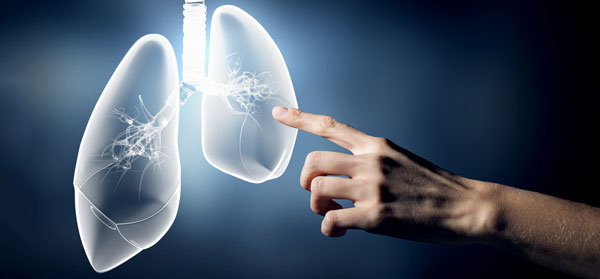Lung cancer is Australia’s fifth most common cause of cancer and the biggest cancer killer, but many of its symptoms are difficult to detect. So, how do you spot lung cancer?
There are two main types of lung cancer. The most common is called non-small cell lung cancer – accounting for more than 80 per cent of all lung cancer cases. The second is known as small cell lung cancer, which is not as common, accounting for around 12–15 per cent of cases.
The symptoms of lung cancer can include:
- an incessant cough
- a cough you’re not used to having
- coughing up blood
- wheezing
- hoarseness of voice
- shortness of breath
- chest and/or shoulder pain
- unexpected weight loss
- loss of appetite
- lung infections
- excessive fatigue
- swelling in the neck and/or face
- bone pain and headaches (if already spread form the lungs).
The most common cause of lung cancer is smoking, but it can also occur in people who have never smoked in their life, especially those who have spent a lot of time around smokers. People who have worked with asbestos and smoked are in the high-risk department. Other occupations that have a high rate of lung cancer incidence are steel, nickel and chromium processors, or anyone who’s had exposure to arsenic, coal gas and radiation.
Lung cancer is not so common amongst younger people, but after the age of 50, the rates increase dramatically. In fact, Australians who reach their 85th birthday have a one in 17 chance of developing lung cancer.
In Australia, lung cancer is the leading cause of death out of all the types of cancer. More than 12,000 Aussie are diagnosed with lung cancer each year, and around 7000 die, so awareness of the disease is paramount.
Those who are diagnosed with lung cancer have a range of treatments available to them, depending on the type of cancer. These include:
- surgery
- chemotherapy
- radiotherapy
- laser treatment
- targeted therapy (biologic drugs).
And the outcomes depend on:
- what type of cancer they have
- how far it has already spread
- the person’s overall health
- their suitability for surgery.
The best chance of survival is when cancer is detected and treated early. Many people who have early surgery or early-stage lung cancer have a good chance of being successfully treated.
So, how can you reduce your chance of developing lung cancer?
Well, the best advice is to never smoke. But if that ship has sailed then you should really try to break the habit. Minimising your exposure to second-hand smoke is also a good move, and avoid asbestos and any of the chemicals listed above.
And you may not be surprised to read that maintaining a healthy lifestyle through healthy diet and regular exercise will also improve your chances.
For more information about lung cancer awareness, visit www.canceraustralia.gov.au
Related articles:
Health info that can save your life
What smoking does to your body
How Australians die

